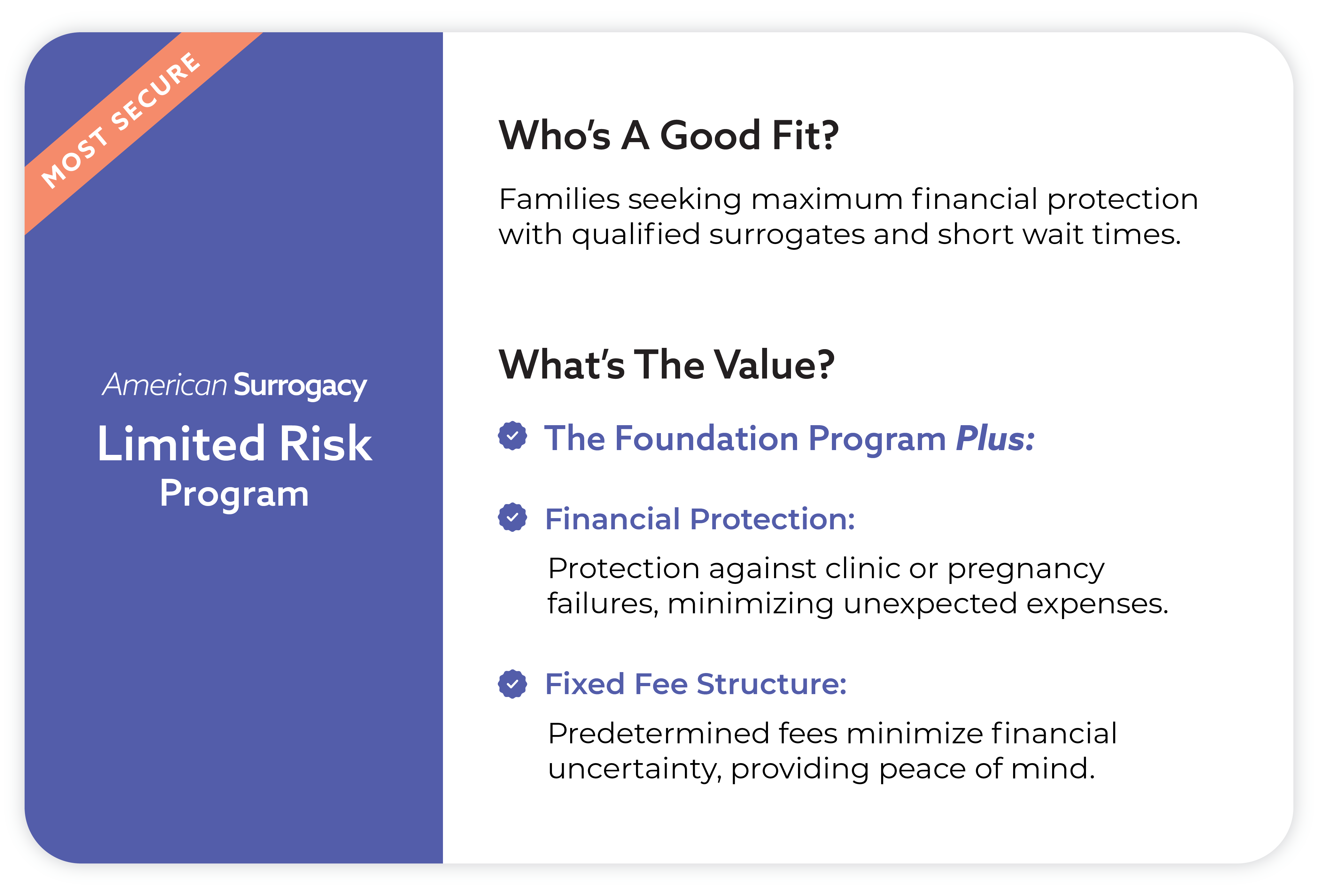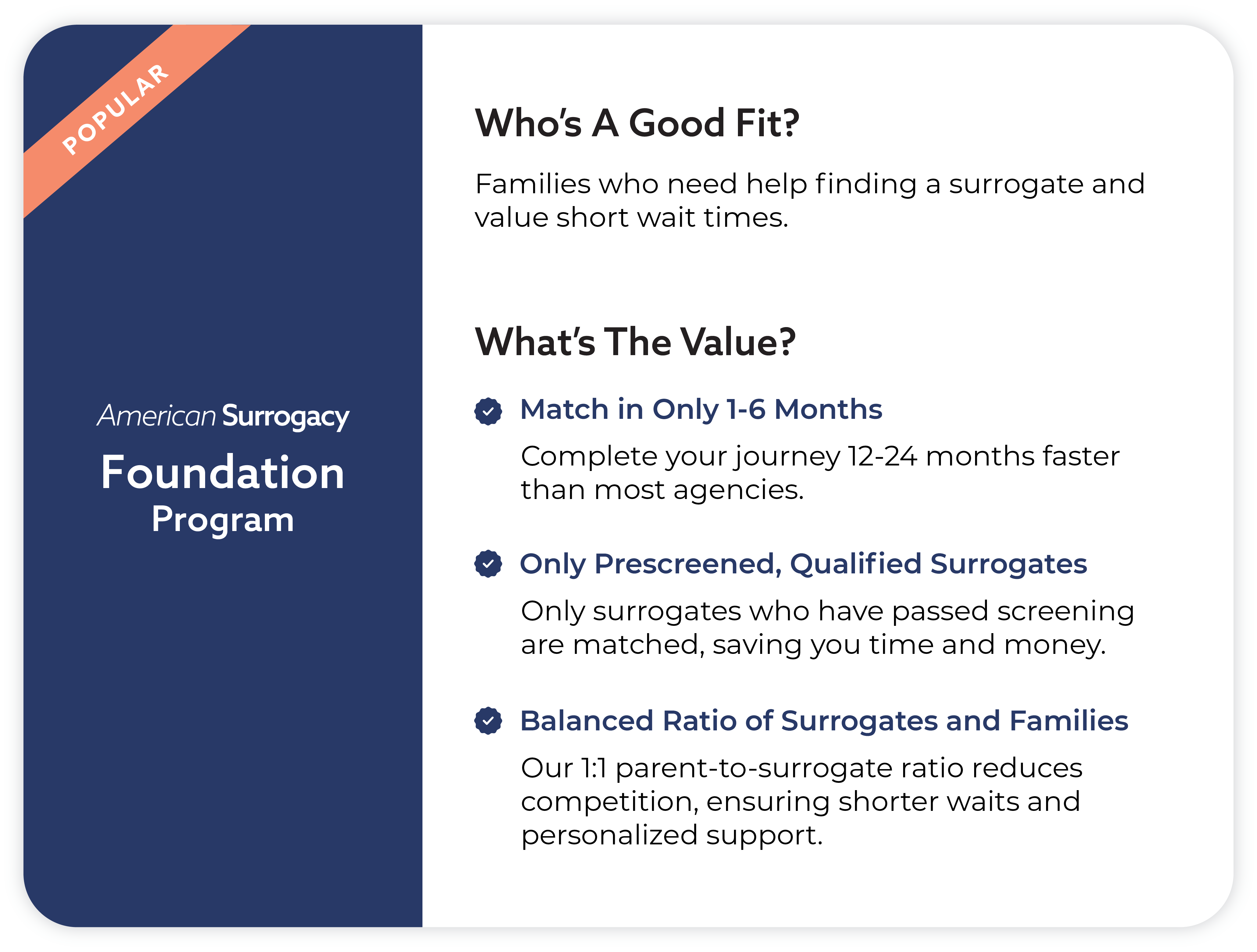Surrogacy is a life-changing journey — and in Idaho, that journey is possible. Idaho legalized and regulates surrogacy, and the legal framework here has made many successful family-building journeys possible.
At American Surrogacy, we help hopeful parents and surrogates navigate Idaho surrogacy law with confidence. Whether you’re just starting out or already matched, we’ll ensure your legal foundation is strong — and your dream of parenthood stays protected.
Idaho Surrogacy Laws
Idaho allows surrogacy. This means surrogacy is permitted and there are protections in place for the parties involved.
Is Paid Surrogacy Legal in Idaho?
Yes. Idaho does not prohibit compensated surrogacy. Intended parents may legally provide compensation to a gestational surrogate, as long as the terms are clearly outlined in a legal surrogacy contract.
At American Surrogacy, we work with intended parents and surrogates across the country — so even if you’re facing limitations locally, we can match you with a surrogate or family in a surrogacy-friendly state.
Learn More About Surrogate Compensation
Are Surrogacy Contracts Enforceable in Idaho?
Yes — as long as surrogacy contracts follow the laws in place in Idaho, surrogacy contracts are enforceable.
A clear, comprehensive surrogacy contract is essential to protect everyone involved. Our agency ensures every party — intended parents and surrogates alike — are represented by separate, qualified attorneys.
What Should Be Included in a Surrogacy Contract?
Your Idaho surrogacy contract should cover:
Compensation for the surrogate, reimbursements and handling of unexpected costs. Who makes decisions about embryo transfers, selective reduction, pregnancy termination or cesarean delivery? Wellness expectations, travel restrictions and communication preferences. How and when the intended parents will be recognized as the child’s legal guardians. Clear methods for resolving disagreements—without jeopardizing the journey. What happens if one party needs to end the agreement early?
Each contract should be tailored to your specific journey and reviewed by a surrogacy attorney in Idaho.
When Do I Need a Surrogacy Contract?
Surrogacy contracts are created after matching with a surrogate or intended parents — and before any medical procedures begin. This legal step ensures both parties are protected before pregnancy occurs.
Learn More About the Surrogacy Timeline
How Will American Surrogacy Support Me During the Contract Stage?
From day one, we research Idaho surrogacy law to ensure every match aligns with state-specific requirements. We’ll guide you through every legal step — in collaboration with your surrogacy attorney — to protect your rights and your future family.
American Surrogacy provides full-service support, including:
Explaining complex legal language in plain terms Assisting with contract negotiations and feedback loops Coordinating timelines between medical and legal milestones Ensuring all documentation is signed and submitted on time Connecting you with a surrogacy attorney near you How We Help You
You’re never alone in this process — we’re your partner in every legal and emotional step.
LGBTQ+ Surrogacy Laws in Idaho
New laws in Idaho have made surrogacy easier for LGBTQ couples since 2023, so you will likely face few problems with the help of a surrogacy agency.
Abortion Laws in Idaho and Surrogacy Contract Termination Agreements
Idaho has some of the strictest abortion laws in the country, prohibiting most abortions with limited exceptions.
This is important for surrogacy contracts: termination clauses must comply with Idaho law and reflect both parties’ beliefs and comfort levels. If these laws pose challenges for your journey, we can help you pursue surrogacy in a state with more flexible laws through our national network.
Surrogacy Laws for Establishing Parentage in Idaho
Idaho allows parents to establish parentage through a pre-birth order in the new bill that was passed in2023.
Each case is reviewed by a judge, so experienced legal representation is key.
How to Get a Pre-Birth Order in Idaho
To obtain a pre-birth order in Idaho:
- Your attorney helps you create legal agreements before pregnancy, which are reviewed before birth
- The court verifies that your pre-birth order meets legal standards, allowing intended parents to be placed on the birth certificate immediately
- Birth certificates are usually available shortly after delivery.
International Surrogacy and Idaho Law
Idaho has no specific laws regulating international surrogacy. However, intended parents from other countries have successfully worked with Idaho surrogates — provided that all U.S. immigration and legal parentage requirements are met.
The Role of a Surrogacy Attorney in Idaho
A surrogacy attorney in Idaho will:
- Draft or review your surrogacy contract
- Ensure compliance with Idaho law
- File pre- or post-birth parentage petitions
- Represent you during court proceedings
We can help you find a qualified surrogacy attorney in Idaho.
How Much Does a Surrogacy Lawyer Cost?
Surrogacy attorney fees in Idaho vary by firm but often range from $5,000 to $10,000. Intended parents cover the cost of legal fees for both parties.
The good news? American Surrogacy builds these costs into our program fees, so you won’t need to budget for surprise legal expenses.
Find a Surrogacy Attorney Near You
Here are some Idaho surrogacy attorneys:
With over 30 years of experience in family law, Jeffrey T. Sheehan specializes in adoption and assisted reproductive technology (ART) matters, including drafting surrogacy agreements. He has handled numerous national and international adoptions and is a fellow of the Academy of Adoption & Assisted Reproduction Attorneys. His extensive trial experience allows him to effectively assess cases and discuss both in-court and out-of-court options with clients.
Licensed to practice in both Washington and Idaho, Mark R. Iverson has over 25 years of experience focusing on adoption, guardianship, and surrogacy law. He represents intended parents, gestational carriers, and surrogate hosts in ART matters. Mr. Iverson is a fellow of the American Academy of Adoption Attorneys and offers consultations to prospective clients.
Need help finding the right attorney? We can match you with one who understands Idaho surrogacy law.
Explore Our Surrogacy Programs in Idaho
We offer three comprehensive surrogacy programs, tailored to your needs:
Limited Risk Program

Foundation Program

Independent Program

FAQs: Legal Aspects of Surrogacy in Idaho
Are insurance companies required to cover IVF in Idaho?
No. Idaho does not mandate insurance coverage for IVF.
Is an embryo considered a person in Idaho?
Idaho does not have specific legislation classifying embryos as persons, but due to its strict abortion laws, this is a gray area. Legal advice is recommended for embryo disposition or disputes.
Is traditional surrogacy legal in Idaho?
No, traditional surrogacy is no longer legal in Idaho as of 2023.
Do sperm and egg donors have parental rights?
In Idaho, donors do not have parental rights if they are anonymous and the donation is done through a licensed medical facility.
Is there an IVF Tax Credit?
No. Idaho does not currently offer a tax credit for IVF procedures.
Ready to Begin Your Idaho Surrogacy Journey?
Whether you're building your family or helping someone else build theirs, we're here to guide you every step of the way.
This article is not intended to be and should not be taken as legal advice. Please contact a local surrogacy attorney in Idaho for more information about the current state of surrogacy laws in Idaho and to obtain proper legal representation.